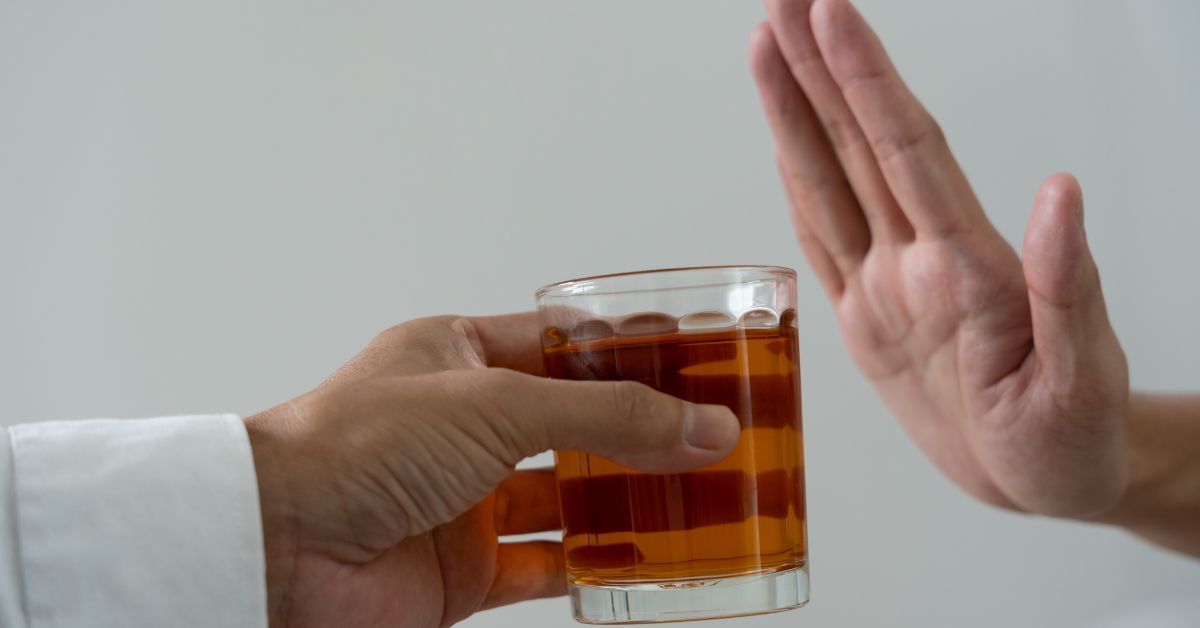Why do teens reach for alcohol? It’s a question that doesn’t come with easy answers, and it’s one that can keep a parent up at night, wondering if there’s something you could have done differently.
But here’s the thing, and it’s important to remember—you’re not alone. Many parents are in the same boat, trying to understand the reasons behind their teen’s choices. The reasons can be as varied as the patterns on a quilt; sometimes, they’re just as complex.
In this post, we’re going to take a gentle stroll through the landscape of a teen’s world. We’ll explore what might nudge them towards that first sip and what keeps them coming back for more. It’s not about assigning blame or pointing fingers; it’s about seeking to understand. Understanding is the first step to supporting your child through their challenges.
So, let’s dive in together with open hearts and minds, ready to learn about this sensitive topic.
The Core Question: Why Do Teens Drink Alcohol?
It’s not always easy to get to the heart of why teenagers may drink alcohol. It’s a bit like trying to understand a story where everyone’s speaking at the same time – each teen has their own narrative that’s influenced by different things around them. But if we listen carefully and piece together the common threads, we can see a bigger picture that helps us better understand and, more importantly, support our young people. Let’s delve into some of the reasons why teens may turn to alcohol.
Seeking Social Acceptance
- Peer Pressure: The need to fit in can be overwhelming for teens. Sometimes, they drink simply because their friends are doing it.
- Social Events: Parties and gatherings often have alcohol, making it seem like a normal part of socializing.
- Pop Culture Influence: Movies, music, and social media can portray drinking as glamorous or a rite of passage.
For some teens, alcohol may seem like a way to overcome shyness or social anxiety. They might think drinking will make them more outgoing or help them fit in better. Unfortunately, this can start a cycle of relying on alcohol in social situations, which can lead to bigger problems down the road.
The need for social acceptance can lead teenagers to make bad decisions. They completely forget about how this can affect their brains.
Here’s where parents have to intervene. Good drinking advice from parents at this age can prevent not only underage drinking but also possible drinking problems like alcohol abuse and alcoholism in the future.
Managing Emotional Turmoil
- Stress Relief: Teens might use alcohol to unwind after a tough day at school or to escape from pressures at home.
- Coping with Anxiety: For some, alcohol feels like a way to deal with social anxiety or other fears.
- Self-Medication: Teens may not always understand their emotions, and alcohol can seem like an easy fix for pain or sadness.
FREE: Get the 3 pieces of advice that helped me understand this disease of addiction
The Thrill of Risk-Taking
- Experimentation: Adolescence is a time for trying new things, and alcohol can be one of those forbidden fruits that are tempting to taste.
- Rebellion: Even knowing they haven’t reached the drinking age, some teens drink as a way to push against rules and assert their independence.
- Sensation Seeking: The buzz from alcohol can be alluring for those looking for a rush or a new experience.
Understanding these common themes doesn’t mean we have all the answers, but it does give us a place to start conversations. Take this as an opportunity to educate your child about substance use disorders and alcohol effects.
Mental Health Issues
Coping with mental health issues like depression and anxiety can play a role in why teens drink. They might use alcohol as a way to self-medicate and cope with their feelings. It’s important to address these underlying issues so teens don’t turn to alcohol for relief.
The Role of Boundary Setting on Teen Drinking Habits

Clear rules about alcohol use help give your teen something solid to rely on when they face the pressures and temptations that come their way when you sit down and talk openly about what you expect from them regarding alcohol and what will happen if those expectations aren’t met.
By being clear with your expectations and consistent with the consequences, you’re showing your teen a kind of respect. You’re saying, “I trust you to understand these boundaries and to make good choices.” And, in turn, they learn to trust themselves to do just that. They learn to navigate social situations where alcohol is present, to weigh risks and benefits, and to make choices that align with their values.
What Are the Treatment Options for Teen Alcohol Misuse?
If you find that your teenager is wrestling with alcohol, it’s important to know that there’s a whole array of support that can wrap around you and your family.
Options like therapy can offer a space for your teen to talk things through, and support groups bring folks together who understand what you’re all going through. Reaching out to a professional can be a big step, but it’s one that can set the wheels in motion for a healthier path forward.
NEW: How to make the shift from "Mom Code" to prioritizing your own well-being
How Can Parents and Caregivers Set a Good Example?

As parents or people who look after young adults, you’ve got this hefty role in shaping the way they see drinking. Take every chance you have to educate your child about substance use disorders and alcohol effects.
Maybe parents of addicted adults don’t have to deal with this kind of thing, but when it comes to teenagers, the approach must be different. All your actions have to come from a place of love and support.
Now, imagine you’re handling alcohol with care, not overdoing it, and chatting about the dangers without making it seem like a forbidden mystery. That’s the kind of example that sticks with them, showing rather than just telling how to approach alcohol sensibly.
But here’s the thing—it’s not just about being a role model. It’s about making your home safe for your teen to talk. It’s like leaving the front door open so they can come in and out with their thoughts and questions.
You have to help yourself first if you want to help your kid. The teenage years are the most critical, and well-informed adolescents tend to make better decisions. We offer programs designed for parents to acquire the tools they need to become the version of themselves that their children require.
WATCH: Free, confidential workshop that explains how to "Love Another Way"
Steering Through the Storm: Guiding Teens Away From the Risks of Drinking

As we wrap up our journey through the complexities of teen drinking, it’s clear that the waters can be murky and the currents strong. But by understanding the whys and wherefores behind our teens’ choices, we can offer them the lifelines they need to stay afloat.
Teen drinking is not a riddle to be solved in one sitting, and it’s not a journey that any parent or caregiver has to navigate alone. If your heart is heavy with worry, remember that help is just an anchor’s throwaway. You don’t have to figure this out by yourself.
For those who feel like they’re sailing in choppy seas, we’re here to be your beacon. Reach out to us if you have questions, need guidance, or want to talk to someone who gets it. Together, we can steer towards calmer waters and a brighter horizon for our teens.
Frequently Asked Questions About Why Do Teens Drink Alcohol
Why do people drink alcohol?
People drink alcohol for a variety of reasons, some of which include social bonding, stress relief, to celebrate, or sometimes to escape from personal problems. It’s like how someone might want to unwind with a cold drink after a long day of work—it’s a way to relax. For others, it might be part of a tradition or a celebration, like toasting champagne at a wedding. But it’s important to know that while a drink every now and then might be okay for some, it can become a problem if someone starts to rely on it too much.
When did underage drinking start?
Underage drinking started as far back as alcoholic beverages have existed because, historically, there weren’t always laws to stop young folks from drinking. It’s tough to pin down an exact time, but we know that in many cultures, drinking wasn’t just for adults. Over time, societies realized that it might not be the best idea for youngsters to start drinking early, so they set up laws to protect them. It’s recognized that young brains are still developing, and it’s better to wait until they’re fully grown.
SEE: Find out why your boundaries keep getting crossed (and how to reinforce them)
What happens if a 13-year-old drinks alcohol?
If a 13-year-old drinks alcohol, it can lead to some serious problems both in the short term and down the road. In the immediate sense, it could make them sick, impair their judgment, and put them at risk for accidents. Over time, it can mess with their developing brain, possibly affecting their memory and learning and leading to an increased risk.
